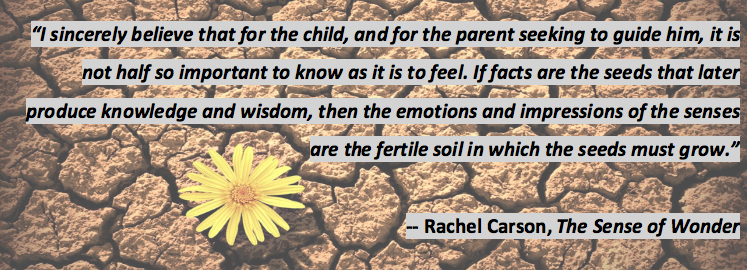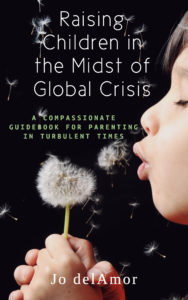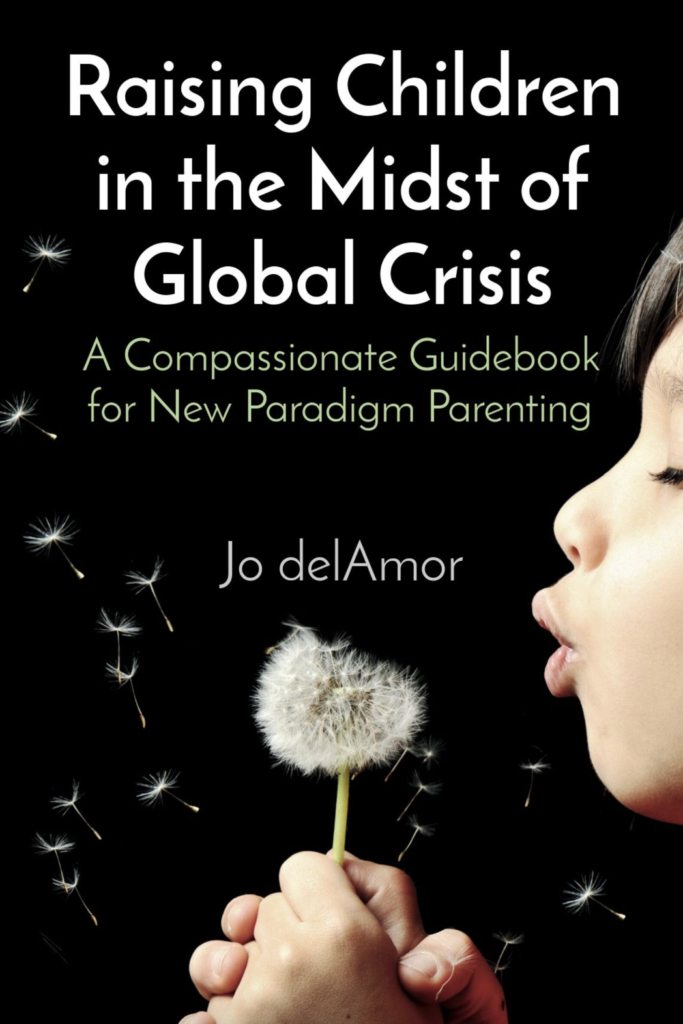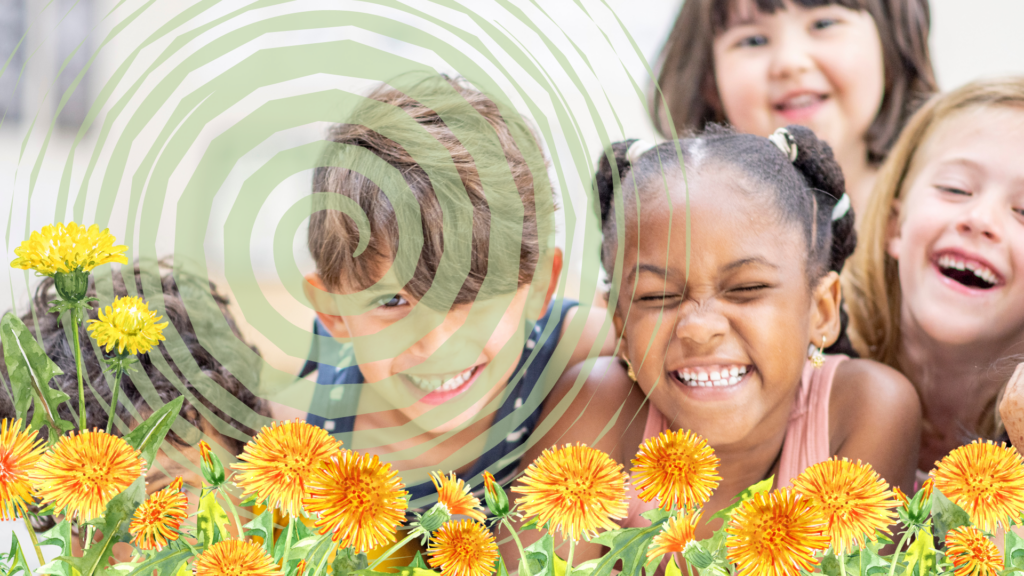This passage is an excerpt from the forthcoming book “Raising Children in the Midst of Global Crisis: A Compassionate Guidebook for Parenting in Turbulent Times” by Jo delAmor

“When your children are experiencing challenging emotions, whether they want to talk with you about them or not, your response can make all the difference in the world to them.
The first and most important work for us to do as parents is to internally recognize that our children are having their own experience, distinct from ours. This keeps us from jumping into the muck with them and getting tangled up in the dysfunctional patterns that many of our families are afflicted by. If you’ve been doing your own emotional work this will be a lot easier.
The second thing is to validate their experience. To see it as a legitimate response to their lives and a communication about something that needs to be understood and addressed. If they are open to hearing from you about it that is a really important thing to say out loud. “I see that you’re pissed off about that. It’s totally understandable,” or “I know it’s really sad and scary for you to have to face this right now.”
If you are calm and centered and are able to honestly witness their pain without trying to stop it or fix it and without encouraging them to run away from it they will have the chance to feel it and to metabolize it. Whether it’s something as small as what another kid said to them on the playground or as large as grieving the loss of one of their peers to suicide, it is essential that they feel it and that they feel supported by you in that.
The best way to teach your kids how to feel and express their feelings is by modeling with your own behavior and making room for all the feelings to exist with respect within your household and relationship. If this groundwork is laid then you’ll be able to more easily guide them gently through their experience when they encounter challenging feelings. If you haven’t laid that groundwork they’re not going to want to hear your ‘advice’ when they’re in the thick of it. Make room for the whole range of feelings in your daily life as they grow up and let them know that they are all okay.
When you feel your own feelings arise you can show them how to identify a feeling and name it, by saying out loud, “I’m feeling grumpy,” or “I’m feeling sad today.” Then you can acknowledge how that feeling may be affecting your behavior and bring yourself into accountability for the impact your behavior might be having on others. “I’m just feeling really grumpy today. I’m sorry for being short with you or not wanting to joke around. It isn’t about you, at all.” This creates room for the feeling and it interrupts the assumptions and projections that happen when we are unconsciously reacting to each other and taking things personally.

Everyone will have moments of feeling grumpy, sad, angry, giddy, excited, scared, anxious, uncertain, apathetic. These, and any other possible feelings, are all okay. Do not disparage, dismiss, ignore, belittle or make fun of your children’s feelings. They are real. They are important. They carry essential messages that can help your child find their way in the world and give you direct guidance into how to parent them more effectively.
Especially when the kids are little, their expressions may reveal that they are in need of rest or food or water or that they’re getting sick. They might signal a stage of growth or hurdle they’re overcoming. Your children’s feelings may provide vital information on something you’re doing or not doing (like paying attention) so that you can correct your course.
As they grow older and their lives become more complicated, their feelings might point to some hurt or obstacle they’ve experienced in their world beyond you. When children feel respected and safe to express emotions in your presence they can share more of their life with you and you can be the supportive partner they desperately need to navigate a world they are only beginning to grow into.
Sometimes your children won’t know why they’re feeling what they’re feeling. That’s okay too. On some level most of us (and our kids) are feeling a significant amount of subconscious empathic stress as we pick up on the suffering of the world. This causes quite a lot of unexplained angst, distress, anxiety and confusion. We can hold presence and respect even for these feelings that are beyond our direct understanding and don’t seem to be connected with anything in our personal lives. We can use the same practice of acknowledgement, validation and ‘feeling’ the feelings even when we don’t understand them.
Practice making room for all the feelings, identifying them and acknowledging them. When your children get upset try to notice and respond to the feeling instead of the behavior. If they are frustrated or angry or disappointed and acting out in some way you can say something to the effect of, “Are you frustrated?” or “I understand. That’s really disappointing.” Then you can connect with them about how to let the feeling be there, how to feel it and how to express it in a way that won’t cause harm to themselves or others.
These moments are excellent opportunities to support your children in connecting with their own inner knowing and intuition as they learn to listen to the messages that their feelings are sending and learn from them. Through this practice you and your children can learn, together, how our feelings are part of the feedback loops in the living systems which we live within. If you’re paying attention, these moments will present themselves regularly throughout your children’s lives and each time they will offer an opportunity for your child to learn more about themselves, to feel closer to you and to move through essential thresholds of maturation.
As you and your children learn together how to metabolize feelings and receive their messages you may be guided to take more initiative in your lives and to work together towards creating lives of wellness and beauty. The intelligent feedback of your emotions will teach what you need to know to thrive if you are tuned in and paying attention.”

This is an excerpt from the forthcoming book Raising Children in the Midst of Global Crisis: A Compassionate Guidebook for Parenting in Turbulent Times by Jo delAmor
Visit this page for more information about this book and to sign up to be notified when it is published and available for sale.



